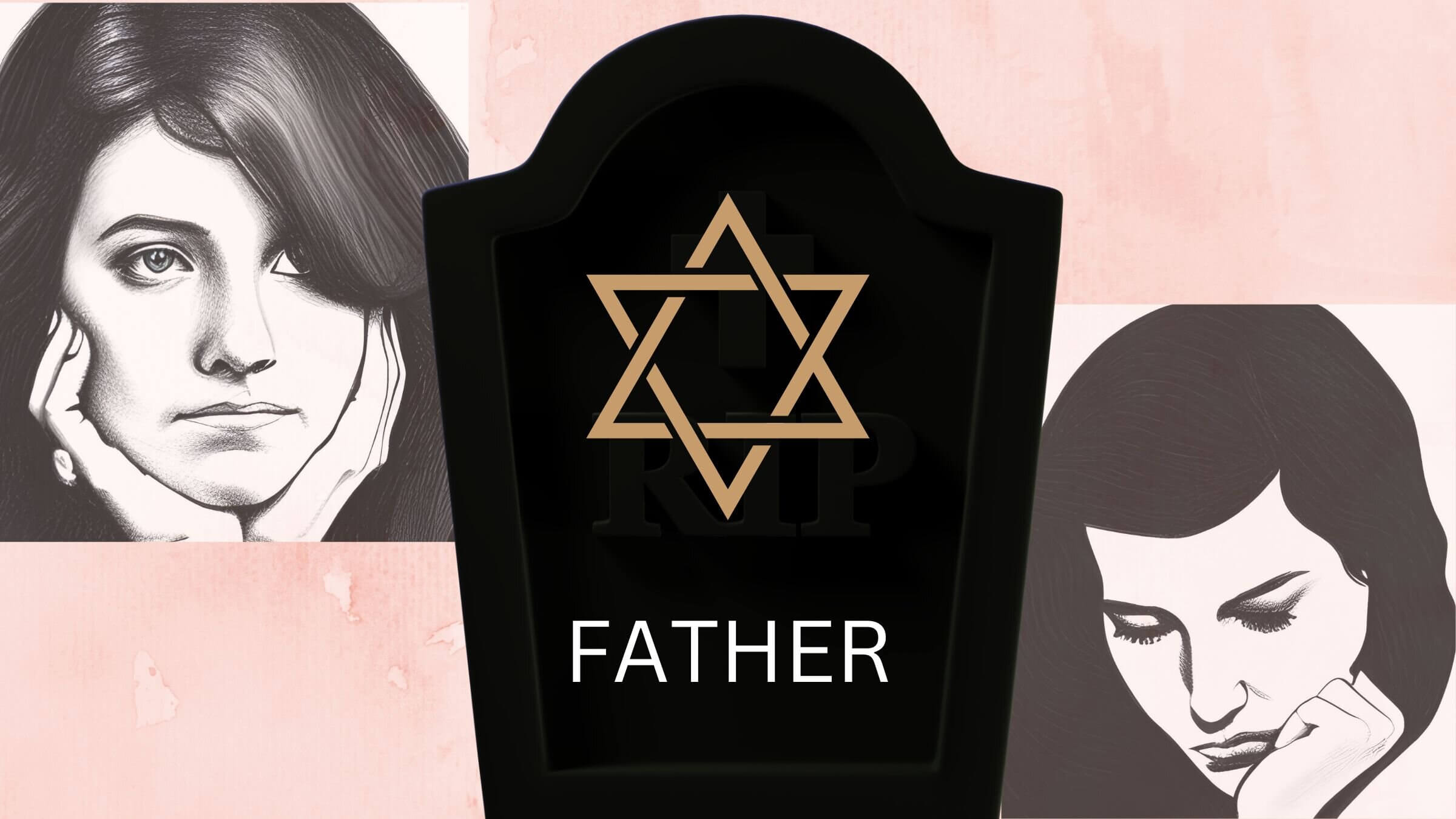BINTEL BRIEFMy sister cut me out of her life after our father died. How do I fix this?
Bintel says you can open the door — but you can’t make her walk through

A woman severed family ties after her father died. Can her sister make amends? Graphic by Beth Harpaz/Canva
The Forward has been solving reader dilemmas since 1906 in A Bintel Brief, Yiddish for a bundle of letters. Send us your quandaries about Jewish life, love, family, friends or work via email, Twitter or this form.
Dear Bintel,
My sister has refused to speak with me, or anyone else in my family, for 40 years. Oy vey, that’s a long time! She believes that I blame her for our father’s death, which seems crazy to me since I was 21 at the time and away at college when he died of a heart attack. I have no idea what I could have done or said to make her think that.
My father was difficult, and each sibling (there are four) had a complicated relationship with him.
My mother later died heartbroken, because my sister was estranged. It was a continuing source of pain to her that she had no relationship with her daughter and was never given a chance to repair the relationship.
My entreaties over the years have come to nothing. I wonder if there is a way to make amends, though for what, I’m not sure. I think of her often and wish I didn’t. Is there any chance for some kind of reconciliation?
Signed,
Estranged Sister
Dear Estranged Sister,
Wow, that’s a lot of drama. My take? I think your sister made a choice to walk away from all the mishegas, and I don’t blame her.
If she really thought she was being unfairly blamed for her father’s death, that’s terribly painful and a terrible burden, whether or not it makes any sense to others in the family. Severing contact could simply have been an act of emotional self-preservation.
Or perhaps she cut off contact because being around family stirs up unbearable memories. After all, you say your father was “difficult” and his relationship with his children was complicated. Maybe her experience was even worse than your own.
The question you need to ask yourself is this: What do you want from your sister? Are you ready to let go of the pain and confusion connected to your father’s death and just love and accept this woman with all your heart? Or is reconnecting with her a way to sort out what happened nearly a half-century ago and process your own pain?
If you really, truly want reconciliation, you must shed the desire to rehash the past.
It is written in the Book of Daniel (9:9) that we do not ask God for mercy because we are righteous; we ask for mercy because God is compassionate. So don’t go to your sister to prove that you’re blameless and she has no right to be angry. Go because you love her, and ask if she can find it in her heart to love you back.
A few years ago, a friend started ghosting me. When I emailed to ask why, she said I’d hurt her, but that she didn’t want to talk about it.
At first I was perturbed. How could she cancel me without explanation? But the friendship mattered more to me than trying to exonerate myself against a perceived slight.
So I begged forgiveness. I told her that whatever I’d done or said, I never meant to hurt her (true!); that I was deeply sorry that she was upset (also true!), and that I would do anything to make it up to her. To my surprise, she accepted.
Our friendship was restored: We do fun things together and catch up on each other’s lives. She never did tell me what was wrong and occasionally I wonder what my original sin could have been. But the friendship is worth more than finding out.
Consider how this situation might apply to yours. Do you want a loving and caring relationship with your sister, starting fresh from this point on? Or is your main motivation a need to untangle the family trauma and assuage some guilt of your own?
If you’re serious about reconciliation, you must simply say to your sister, in no uncertain terms, “I love you, I miss you and I want to see you. If I ever hurt you in any way, I apologize and beg your forgiveness. Could you find it in your heart to start over?”
You could do this in a letter, an email, a text or a phone call. If you know someone who’s in touch with her, ask them to plead your case. If her birthday’s coming up, send a massive bouquet with a short, loving message.
Just remember that you can open this door, but you can’t force her to walk through. She may well ignore or reject you. But you’ve got nothing to lose by trying. And whether or not you succeed, at least you’ll have a clean conscience because you’ll have done all you could to repair this broken bond. I hope that gives you the peace of mind you seek.
Signed,
Bintel
Do you have an opinion about this Bintel, or a question of your own? We’d love to hear from you. Email [email protected].























